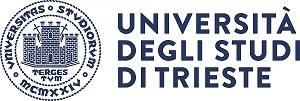The purpose of the project is to demonstrate that alterations in mechanical load could affect the proliferation of multiple cell types in the heart and to create novel therapeutic strategies for both cardiac regeneration and cancer.
While cardiac cells actively divide during embryonic development, the adult mammalian heart retains a poor, if not null, regenerative potential. The sudden drop in cardiomyocyte (CM) proliferation early after birth is paralleled by the loss of angiogenic potential of the heart. At the same time, the heart is rarely affected by cancer. Among the mechanisms that have been claimed to be responsible for the loss of CM proliferative potential at birth is a sudden increase in mechanical load.
We used both an in vivo model of mechanical unloading, obtained by heterotopic heart transplantation and an ex vivo model of 3D tissue outside of the body by Engineered Heart Tissues (EHTs) and we observed that changes in mechanical load affects the proliferation of CMs, cardiac endothelial cells (ECs) and cancer cells implanted in a cardiac tissue.
To assess the effect of mechanical load on cardiac cell proliferation, we used a model of in vivo cardiac unloading, by heterotopically transplanting a donor heart into the neck of a recipient syngeneic mouse, (this is the part in which I applied myself the most, after a direct experience in Innsbruck laboratory): in this model, the aorta and pulmonary artery of the transplanted heart are anastomosed with the common carotid artery and external jugular vein of the recipient animal, respectively, thereby restoring perfusion in the absence of mechanical load within the left ventricle.
Interpret the pathways that inhibit CM and EC proliferation in response to mechanical load will identify novel targets to promote cardiac revascularization and regeneration. At the same time, the mechanical stimuli that operate in a beating heart could be exploited for the development of a mechanical therapy for cancer.
Last updated on: 04/19/2024 - 01:10

